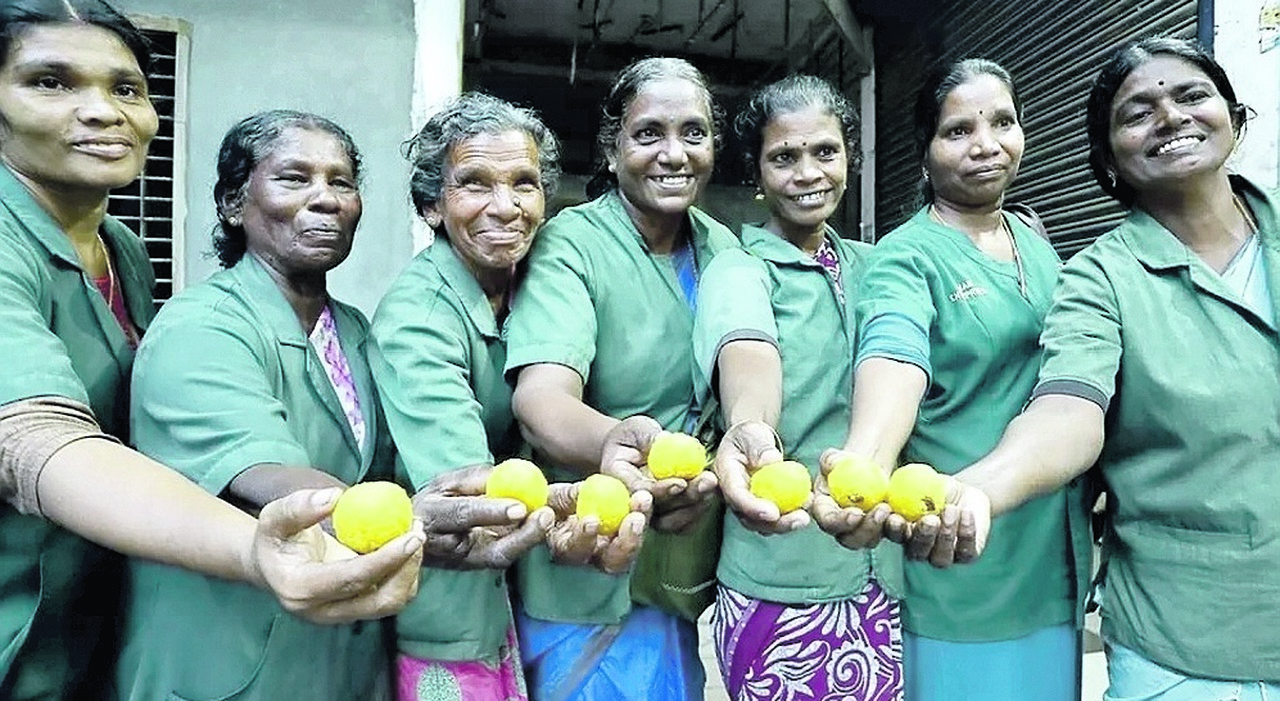It happens that while the whole world celebrates the cinematic success of Barbie, a timeless icon who challenges the patriarchy in Greta Gerwig’s film, eleven women in India’s poorest state become the protagonists of another incredible story, all true. There is no envy or rivalry between these protagonists who have different lives and ages. On the contrary, with the garbage bag closed in one fist, and the other hand gripping that of her friend, these eleven women have turned their lives around by winning the jackpot of Kerala lottery of the monsoon season, one of the most important lotteries in the country: 100 million rupees, equal to about 1.3 million euros. An unthinkable amount of money, which will allow them to build new houses, pay off debts, get their children to study. While, however, they will continue to do their job. Employed in the collection and separation of non-biodegradable waste in the town of Parappanangadi, these eleven women earn 250 rupees a day, about 3 euros. A sum that is not enough to make ends meet. Thus, many of them have to take on debts to take care of family members or send their children to study. They want redemption but hopes are low.
Retired woman wins a villa worth over 5 million in the lottery and puts it up for sale: “I want to help my grandchildren”
THE TURNING POINT
They try their luck three times before the decisive one, but nothing happens. Until last June, they decide to pool their assets to buy a single ticket to one of the richest lotteries in the area. It costs 250 rupees (2.70 euros). Kuttimalu, 72, says she was saddened when Radha, who was collecting the funds, asked her for her share, 25 rupees. All together she didn’t have them but a friend and colleague of hers comes to her rescue: “Cherumannil Baby told me that she had 25 rupees and was willing to lend me half of it for the ticket” she told the BBC . So the two women paid 12.5 rupees each for their share of the ticket. «If we win – she promised her – we will divide the prize equally». And so it was.
NEW MILLIONAIRE
«I’m still in shock – said Radha (49) – It’s incredible. We had to check with multiple people to be sure we won and we still couldn’t believe it. We all come from very poor families, with lots of debts». Cherumannil Baby, 62, said the money will finally allow her to rebuild her home, which was swept away by the floods that devastated Kerala in 2018, while Lakshmi, 49, spoke of relief at having the money to pay his daughter’s school. Leela, 56, has revealed she can finally pay for surgery for her baby girl. For K Bindu, however, the victory was bittersweet. Last year she lost her husband to kidney failure, after the family was unable to fork over the money for him to have a transplant, and though he often bought lottery tickets hoping to win to pay for treatment. Sheeja, president of the Haritha Karma Sena – the waste collection group where women work – said she was happy that luck had kissed the eleven women. “They are people who work hard and do everything to make ends meet,” she said. “It’s really amazing.” The women found out they had won just one day after the draw, when one of them asked her husband to check the results. After paying government taxes, the group will receive 63 million rupees. In addition to collecting garbage, the women help build public toilets and install waste disposal facilities, says KT Balabhaskaran, director of Suchitwa Mission, the agency that coordinates these efforts across the state. On Friday, a day after their life-changing victory, the 11 women made their way to the agency’s office as usual to resume their work. “We have decided one thing – says Leela – We will not leave this job because it was this collective that brought us the wealth”.
Read the full article
on The Messenger
